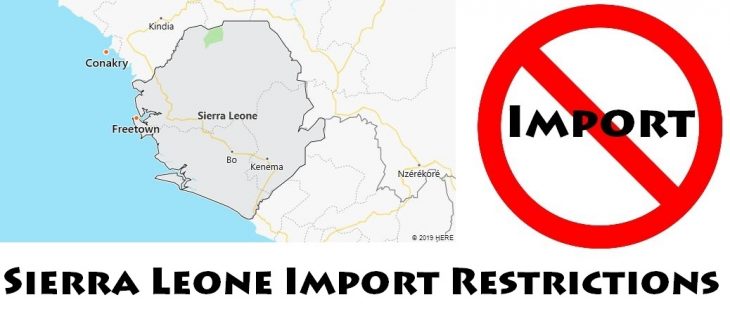Sierra Leone Import Restrictions
In order to enter Sierra Leone, certain goods are subject to specific controls and, regardless of their value and quantity, they require the consent of Sierra Leone government, preferably, license must be obtained prior to passage through the customs, preventing the goods from being retained. On this page, you will see what kinds of items are prohibited from entering the Sierra Leone, and which items need special documentation before exporting to Sierra Leone.
Import regulations
Sierra Leone requires an import permit for many goods. Before posting any item, senders should confirm that the addressee has any necessary permit. Senders should determine import restrictions from Sierra Leone authorities before posting:
- Diamonds, rough
- Drugs and medicines
- Firearms
- Flock or remnants of material
- Plants
- Seeds
- Uniforms, military or government.
Postage stamps
Sierra Leone admits postage stamps only in Registered Post International.
Special documentation requirements
Commercial goods require an inserted certified invoice. For a shipment of several articles, senders should number each article and indicate which article contains the invoice.
Prohibitions
In addition to items prohibited by Dangerous and Prohibited Goods & Packaging Post Guide and ECI International Courier Regulations, Sierra Leone prohibits:
- Currency, counterfeit or imitation
- Distilling apparatus
- Parasites and destroyers of noxious insects.
Suspended services
At the time of publication, ECI service remains suspended. Registered Post International and Express Post International services are also suspended. Air Mail and Sea Mail services for items without Extra Cover are operating.














































